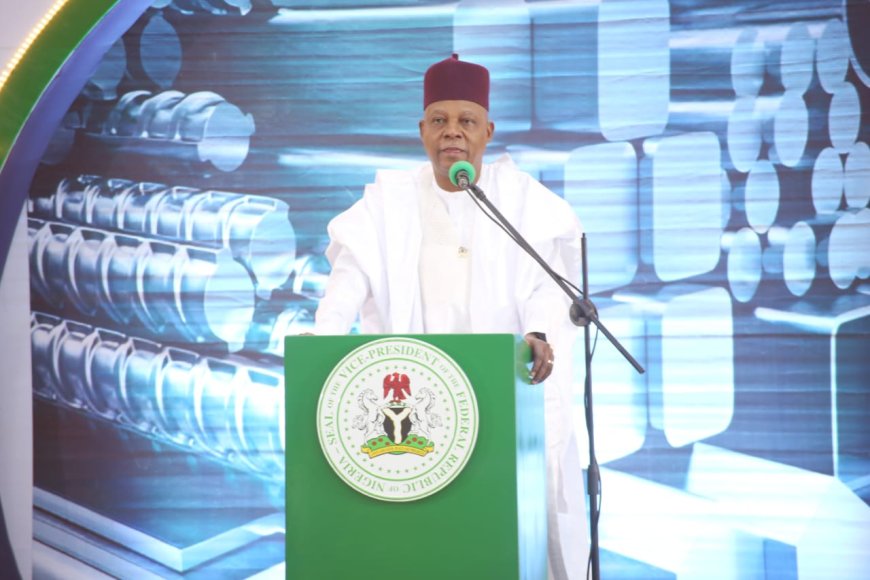FG recommits to MSME growth

The Federal Government has reiterated its commitment to repositioning Nigeria’s micro, small, and medium enterprises as the bedrock of economic transformation.
Vice President Kashim Shettima disclosed this at the sixth Annual Lecture of the Development Bank of Nigeria held in Abuja.
According to PwC’s MSME Survey 2024, Nigeria’s micro enterprises accounted for 96.9 per cent, while SMEs accounted for 3.1 per cent of the total number of businesses in the country. MSMEs contributed about 46.3 per cent to the national GDP and accounted for 6.21 per cent of gross exports and employed over 84 per cent of the total workforce as of 2020.
The Vice President, represented by the Special Adviser to the President on Economic Affairs, Dr. Tope Fasua, stated that MSMEs remain central to the administration’s Renewed Hope Agenda. He noted that, beyond policy reforms, institutions such as the Development Bank of Nigeria are critical in ensuring entrepreneurs across Nigeria have access to the right tools to thrive.
“MSMEs are not peripheral actors; they are the lifeblood of our economy, accounting for over 80 per cent of employment and making a significant contribution to GDP. As the government provides policy clarity and enabling infrastructure, institutions like DBN are key partners in translating vision into action,” he said.
The Vice President outlined President Tinubu’s reform agenda, including fuel subsidy removal, foreign exchange unification, infrastructure renewal, human capital investment and global engagement, adding that these measures were designed to stimulate enterprise, attract investment and expand opportunities for small businesses.In his welcome address, DBN Managing Director/Chief Executive Officer, Dr Tony Okpanachi, said the bank was more than a financier, describing it as “a convener of ideas, a builder of capacity, and a partner in national transformation.”
“We also believe that Nigerian MSMEs, with their resilient, creative, and adaptive DNA, can rise stronger, provided we equip them with the right tools, access to finance, knowledge, and enabling policies. This is the very essence of today’s lecture series.” He added.
Also, the Director-General of the Small and Medium Enterprises Development Agency of Nigeria, Charles Odii, disclosed new policies to strengthen the global competitiveness of Nigerian SMEs. He highlighted four strategic thrusts: regulatory reforms to ease export access, provision of shared infrastructure such as garment hubs, financial and non-financial support for expansion, and innovative logistics partnerships.
“These are the small but significant steps we are taking to ensure our SMEs are not only visible globally but also competitive,” he said, noting that Nigeria’s recent “Best Pavilion” award at the International Africa Trade Fair underscored the need to sustain momentum.
The keynote speaker at the event, Kenyan entrepreneur Flora Mutahi, urged African businesses to embrace scaling as a deliberate strategy to address youth unemployment across the continent. She warned that while 10 to 12 million youths enter the job market annually, only three to four million formal jobs are created. She went further to add that entrepreneurial success is a mindset backed by a strong determination to be resilient as well as a burning desire for success, irrespective of whatever challenges you face.
Stakeholders at the lecture, including policymakers, entrepreneurs, and development financiers, agreed that Nigeria’s economy’s destiny is tied to the success of its small businesses.









